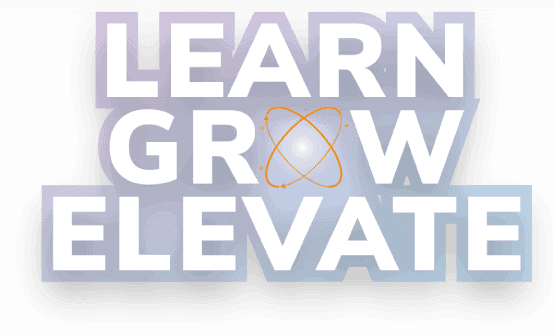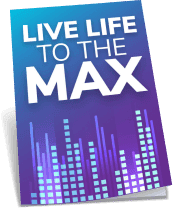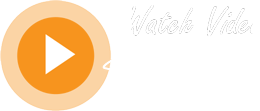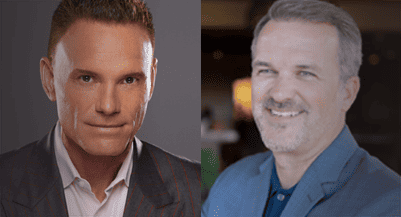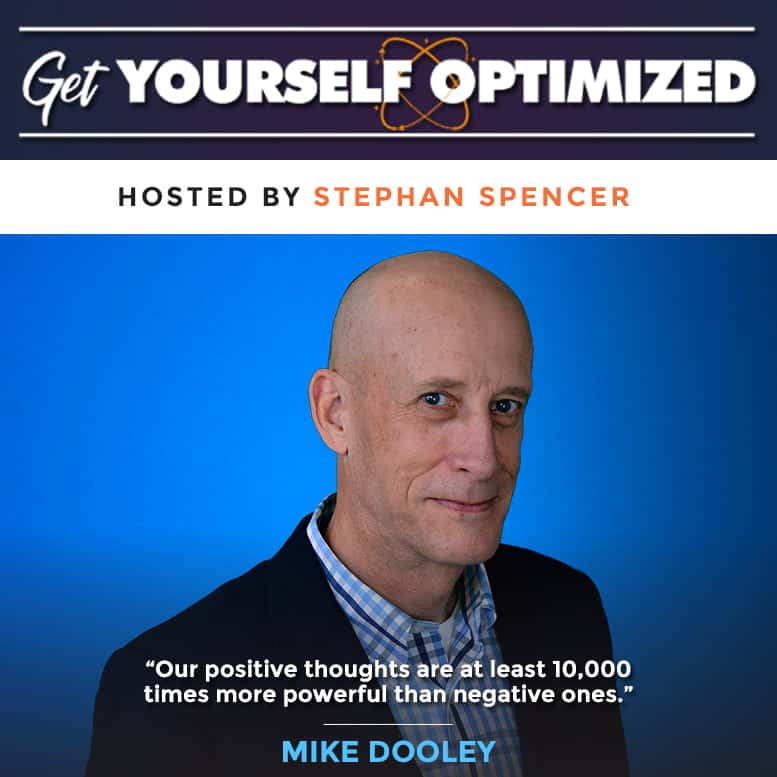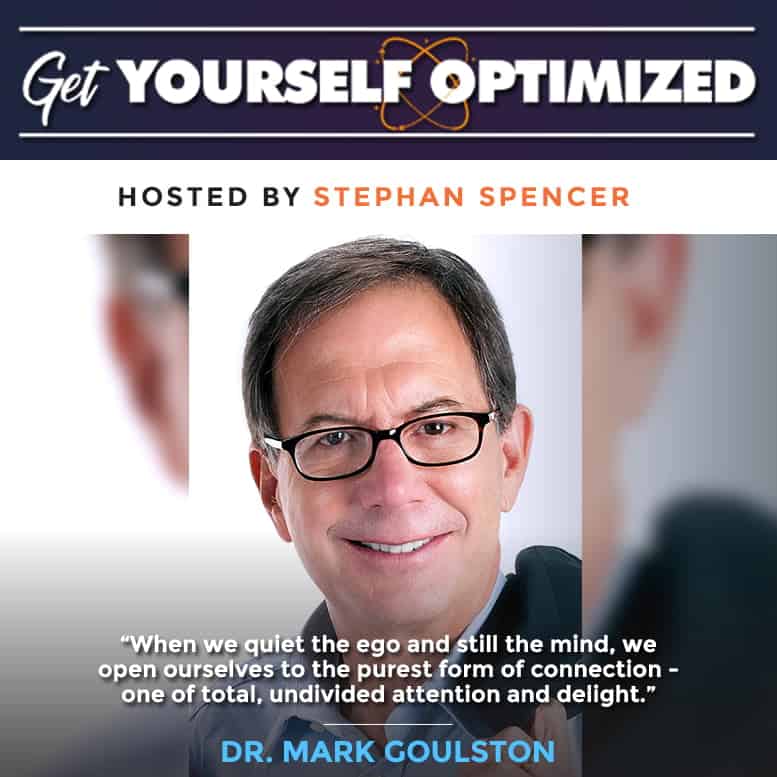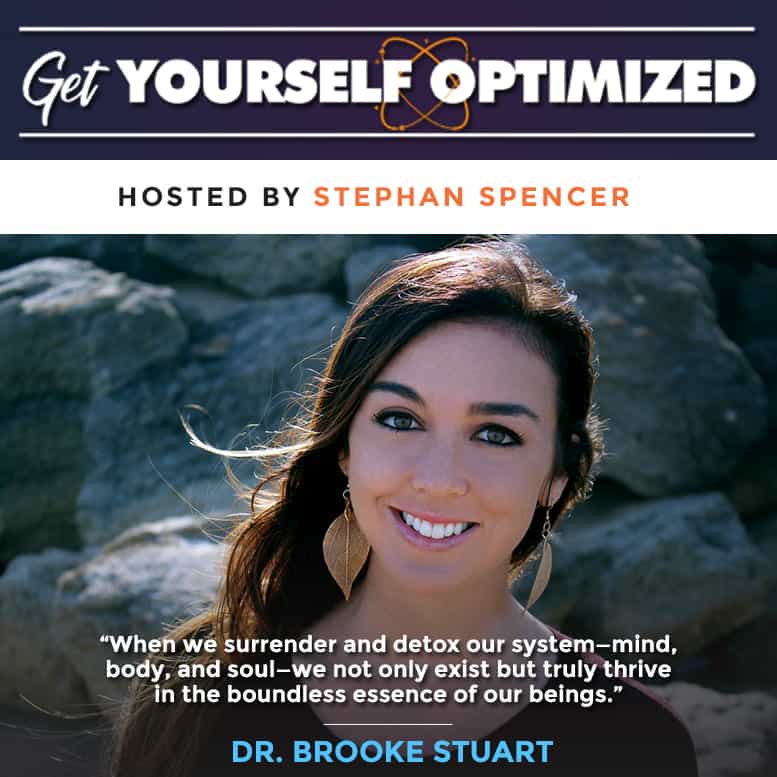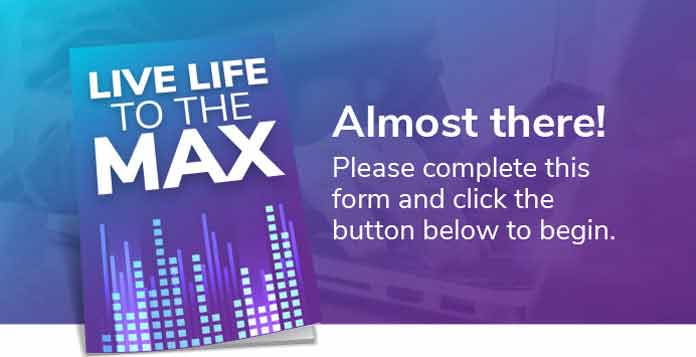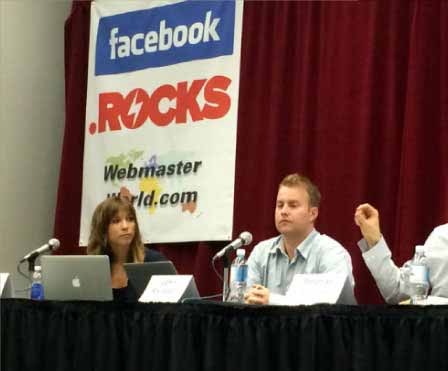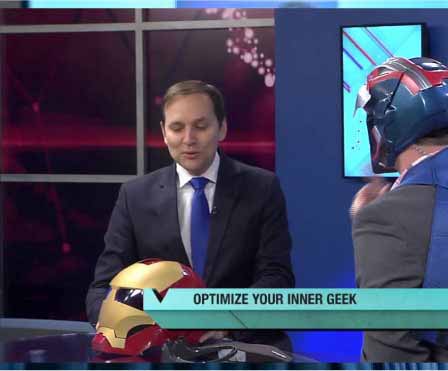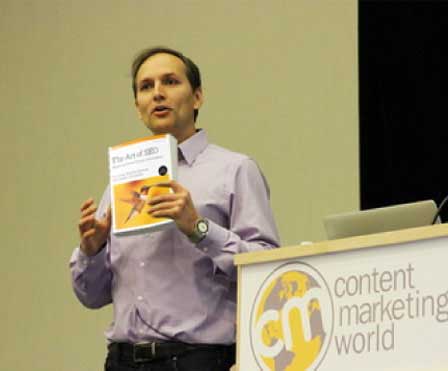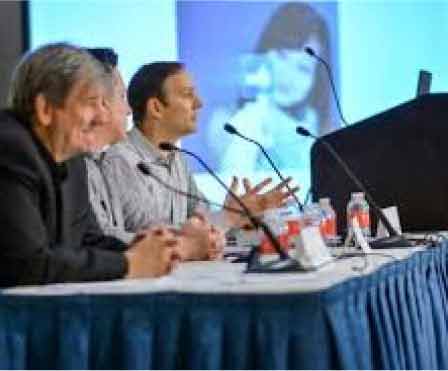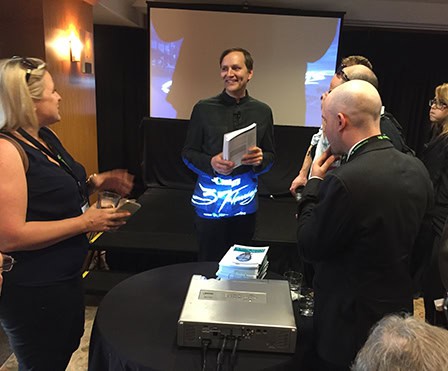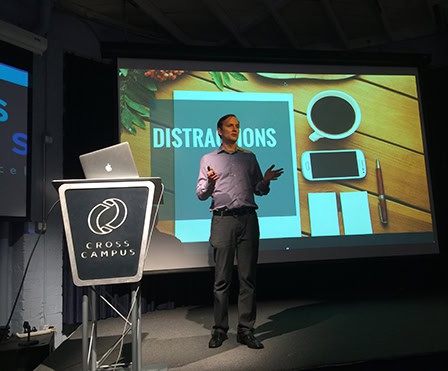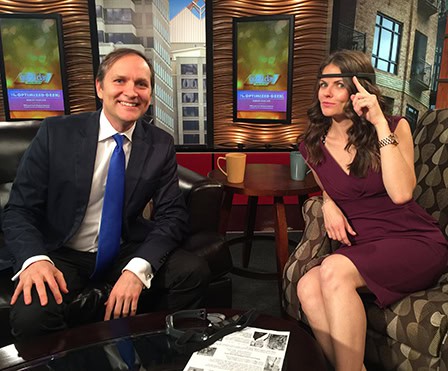In this Episode
- [00:41]Stephan introduces Kevin Harrington, an esteemed entrepreneur of over 40 years and one of the original sharks on the Emmy-winning TV show, Shark Tank and Mark Timm, a serial entrepreneur and exponential-thinking practitioner.
- [03:55]Mark talks about changing from a product business to a problem business and how it served him well.
- [07:21]Kevin and Mark share who they owe a big favor to in making them the success they are today.
- [10:52]One of Kevin’s most significant challenges in his 40 years in business and what he did to work his way around it.
- [13:48]Mark shares the darkest hour of his entrepreneurial career at the same time how one of his businesses skyrocketed amidst the pandemic, helping him reallocate his resources.
- [19:10]Kevin elaborates on transitioning from TV to digital marketing and how his business morphed into different forms of distributions.
- [24:44]Kevin talks about giving back to his entrepreneurial community and shares Zig Ziglar’s quote; “You can have everything in life you want, if you will just help other people get what they want.”
- [30:31]Stephan and Kevin talk about one of Frank Kern’s concepts in doing business; sell it before you build it.
- [34:50]Kevin and Mark share what keeps them up at night during these challenging times.
- [41:12]Check out Kevin Harrington and Mark Timm’s latest book at mentortomillionsbook.com to get your copy and receive exclusive bonuses.
Thank you for joining us. First of all, what would be the biggest epiphany or “aha!” moment that each of you had in your business career? It could be as early as when you were just teenagers or whatever. But what would be that thing that sticks out in each of your minds?
If it solves a unique problem and can communicate it concisely, you have a great business on your hands.
KH: What I’ll never forget when I started filming infomercials back in the early 80s. We filmed it, and we put it on television, and we got great sales. And we thought, wow, okay, we made some money. But then we’re like, well, let’s run it again, and again, and again. And literally, we had no idea that these shows could run thousands and thousands and thousands of times, all over the United States, and then all over the world. What I was creating in those days was that we shot the video, but it was like an asset that could become hundreds of millions of dollars. We were selling thousands of dollars a week in the product. But what we didn’t realize is that this was the beginning of a $200 million run, or maybe even more. Who knew? It was mind-blowing what we uncovered.
That’s pretty cool. How about you, Mark?
MT: So for me, it was I thought I was in the product business. And I had a successful manufacturing company, and I was selling a lot of products. And I started focusing on more products, and more products. And then what I realized is, is that the products just weren’t going as far as I thought they could be. And it wasn’t that I didn’t have good products; it was that I was missing something. I was missing this kind of secret sauce. And I figured out that what I needed to be doing was solve problems. And I was selling to retailers, and retailers had a problem, and that was that their rental space was very expensive. And they paid a lot of money on it. So they took a lot of risks every time they bought products. I figured out that if I could solve that risk, if I could take the risk out of retail, then they would buy more of what I had. Well, as it turns out, if you can take the risk out of retail, they’ll buy almost anything you got. And so that’s when I decided that I was no longer in the product business, I was in the problem business. And if I could solve customers’ problems, they would buy what I have to offer. And that has served me well from that moment until now. And I still consider myself in the problem business, and so is Kevin. I learned that a lot from Kevin and his infomercial business and everything he does, it’s like, what unique problem does this solve? And if it solves a unique problem, and you can communicate it concisely, then you have a great business on your hands.
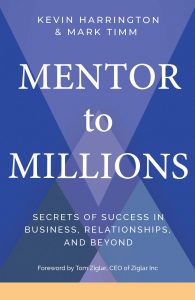
I like that being in the problem business. How did you guys come together to write a book, Mentor to Millions? Why the two of you and why now?
MT: Well, I can tell you how we met. The book is a living example of the whole concept of mentorship because we met through a mutual mentor. So I had a mentor when I was a young man, Zig Ziglar. And Kevin had a mentor when he was a younger guy, Zig Ziglar. Now I didn’t know Kevin, he didn’t know me, but we both had this same mentor. Well, then Zig passes from this earth, and both of us wanted to see Zig’s legacy continue to our children. So we reached out to the family, I developed a relationship with the family. Kevin developed a relationship with the family. And then the family said, “Wait, these two guys got to meet.” And so we met through a mutual mentor.
The title of our book is Mentor to Millions. It’s not millions of dollars, Stephan, and it’s millions of people impacted. The fastest way to impact millions of people is to have the right mentors in your life and to be the right mentor. Zig Ziglar was the right mentor to have. And now, Kevin and I are trying to mentor as many people as we can through this book and impact millions of people so that they can have the same experience that we did. So that’s why I say the book is a living example of the power of mentorship.
How about you, Kevin? This is your first book. Is that right?
KH: No, I had a book. My first book came out in 1990 and did pretty well. But I just never got into the book writing processes, and so I had a book that came out about 10 or 12 years ago and now this one. It’s kind of my third book in 30 years, so I’m good for I guess one every ten years it sounds like. This is far and away though the most time and effort and all of the above writing the book, being involved with the process of the book, the marketing of the book, etc. We’re running on 12 cylinders right now. And it’s exciting, so I’m enjoying myself.
And you guys are doing the whole podcast rounds, aren’t you? Are you doing a lot of interviews?
MT: I think in the next week, we have about 200 interviews that we will have done by the end of this week, and a lot of them go live next week. I just got to tell you, Stephan, we did headline news on Sunday, at five minutes. It was so tight, and it was so awesome. And we got our message out there, and it resonated with so many people. That’s the beauty that this message is so timely. We turned our script almost a year ago. Little did we know the world we were gonna live in and how much people would need mentors right now more than ever.
For sure. So who would you say you have a big favor that you owe to like for your success for each of you?
KH: I’ll start back. I mean, it’s good to always thank your family, your parents. My father was an entrepreneur, and he mentored me to be an entrepreneur. And I started inside his businesses when I was 11 years old. I had a business in high school. I had a business in college. He was 93 years old when he passed, God bless, and he was still mentoring me on one of the new products I launched. And he was telling me what a crappy job I did with certain things. Like, Okay, dad, thank you. At first, it hit me. I’m like, why is he telling me this? And then it hit me and like, you know what, he’s right. So I went back, and we had to change to commercials. Ninety-three years old, he’s telling me I missed the boat on one of the sales points. So my dad was an amazing guy. He was World War Two flying hero and flew 160 missions. So I got a lot of perseverance and skillsets from him, but he mentored me. He is my first mentor, and I just have to say that he was the most unbelievable for me.
The fastest way to impact a million people is to have the right mentors in your life and be the right mentor to others. Click To TweetAwesome. And how about you, Mark, who do you owe a big favor to who kind of lifted you and made you who you are today?
MT: Like Kevin, I go back. I had great mentors. I had three of my grandparents, three men in my life, my great grandfather, and two of my grandfathers were all alive. It’s really funny because I couldn’t wait for school to get out. Because I would take off, my parents would let me go spend a week with each of them. I thought I had the coolest parents in the world because they would let me go spend a whole week with each of my grandparents. And then I got kids, and I realized they weren’t the coolest parents. They were just smart parents. Let’s get rid of Mark for three weeks.
I learned a lot from my three grandfathers. But I would have to say if I had to go back and give a big old thank you, I wish I could sit down with Zig Ziglar again. He left the earth a few years ago, but not just for his legacy of introducing Kevin and me, but his children have continued his legacy. When you get these early mentors, you don’t even appreciate fully how much they’re pouring into your lives. I wish that I had technology as I do now where I can just hit record, and I can record these things so easily. But back when Kevin and I were being mentored early, we didn’t have that ability. And so man, if I could go back, if Kevin could go back and talk to his father, if I could go back and talk to my grandfathers, to Zig, I would be scribbling notes and recording as much as I could, because they were just pouring out the wisdom. And we just weren’t wise enough to grab it all. And we were so thankful that we got what we did.
Maybe someday we’ll have an AI that we can talk to, let’s say a virtual Zig Ziglar. I know Tony Robbins is working on teaching an AI how to be a virtual Tony. And so who knows, we could be talking to a virtual Wayne Dyer in the future virtual name whoever is a big figure from the past. Jim Rohn, Louise Hay, etc. That’d be pretty amazing.
MT: Right.
KH: Beautiful.
Having a lot of pain and agony will end up curing your problem eventually.
What would be an example of a dark night of the soul that you faced and like, just kind of take us there and what happened and why and how you got through it.
KH: I was in the early 90s. I think it was 1990, so it’s about 30 years ago for me. But I was sitting there with a great business, sales were good, we were happy, and all of a sudden, one day my CFO came in, and he said, “Hey, all of our sales that came in over the weekend. It totaled about $2 million in sales.” He said, “The bank normally cashes the credit cards and then sends that money on to us. This particular Monday the bank said, ‘Oh, we’re gonna hold this for a reserve against our potential risk on the credit card account.'” And at first, I didn’t know what the heck they were talking about. I had already given them $500,000 cash upfront as a reserve against returns, and now they wanted another 2 million. Meanwhile, I think if you’ve heard the term the golden rule, he who holds the gold rules means that they were sitting on it. That was my operating capital, my cash flow, pay for my employees that week, my media for that week, my inventory, they in effect, shut me down. And I don’t know that they realized that 2 million was the only 2 million that I had. But that was my working capital, I was a young entrepreneur, and they have 2 million, and working capital is pretty good.
To make a long story short, we had to go into the major mode to get out of that big hassle because we were literally out of business, we couldn’t operate, we couldn’t pay any bills. It was all of our money. And to make a long story short, we ended up getting some good advice and coming around to do some fancy footwork and make some things happen. But it was not without a lot of pain and agony that we ended up curing this problem eventually. And the bottom line is this, Stephan, I’ve had ups, and I’ve had downs, and I’ve learned from all of them that what happened here was that we determined one of our products was having some big defects. We didn’t realize this. The bank found out before we did because they were getting complaints from people that had gotten the product and said it wasn’t working, and they called the bank to cancel their credit card. So instead of calling us, we would have given them their money back or whatever, but the bank was getting all these calls. That’s what got it shut down.

To make a long story short, we changed from there going forward, and we put each product into its own silo, its own venture, its own merchant account. So if we had 20 products, we had 20 merchant accounts. And this was a way for us to protect ourselves against something like that cataclysmic problem that we had there. So it was devastating, we worked through it, we ended up having a lot of pain and agony in the process, but we learned some things along the way.
Got it? How about you, Mark?
MT: For me, I’m gonna make it very relevant and timely because I remember earlier in March of this year, and I think a lot of people can probably relate to this. That I had multiple businesses that I was involved in, and, throughout a weekend, it started about Thursday afternoon and by Monday, 13 of my trips, 13 events I was supposed to be involved in, 13 different things that I was planning, got canceled within those five days. And I think a lot of people can relate to that, especially if you were in businesses where you were traveling, or you were an event-based business, or you’re supposed to be on stage, etc. And it started with one, and in fact, one of them was a venture that Kevin and I were involved in where we had all these people coming into St. Pete, Tampa to do some filming for what we sold in advance.
Always follow the eyeball. Reinvent your business and move forms of distribution to where people mostly go.
And so I just sat there and watched. The first one was like, Okay, okay, I understand, then the second one, then the third one, then the fourth one. And by the time Monday rolled around like my calendar had been decimated. I didn’t have any more travel on the calendar, and I realized that there were a couple of businesses that were done just over. Like six figures worth of income, this is gone. And so it was a dark time in that short window, but that’s where we regrouped. And the biggest thing is that I didn’t want to lose my team. That was kind of a big challenge. I’ve got these great people that I’ve invested in. Where can we redirect those resources so that I don’t lose them, so they don’t lose their jobs? Their families need income. And I’ve invested all this time in them and grown them, so what can we do?
As it turns out, I was also involved in e-commerce. At the same time that I see these other businesses just literally go to zero, I’m watching my e-commerce business, which wasn’t my biggest business at the time, just starts to skyrocket because people are at home, they’re shopping from home. And I’m like, wait a minute, and this fire is growing pretty big over here. I better pay attention to it. I was able to re-allocate those resources over to that business, and now that business is absolutely on fire. It is my largest business by far. Kevin became my mentor, and one of my goals was I’d never taken a business past $10 million. And so Kevin has taken 20 businesses past 100 million dollars. And so I can sit here confidently and tell you that I have my first business that is well on its way to 100 million dollars. And it’s as a result of what looked like the darkest hour of my entrepreneurial career, and out of that was born the biggest opportunity that I may ever see in my entrepreneurial life.
That’s great. So a 100 million dollar business sounds impressive, but if all of its expenses add up to 100 million dollars, then it’s not that great of a business. So are we talking about a highly profitable hundred million dollar business or one that is still in growth mode and having to reinvest most of its profits?
MT: Kevin could speak to his hundred million. The one I’ve got right now is in the e-commerce space, and it’s quite lucrative because it’s based on a new habit that people form, which is not going to the doctor and caring for themselves at home. So we’re developing products that help people with muscle cramps, joint pain, arthritis, nasal care, etc., which happens to be fairly lucrative, decent margin products. But Kevin could speak. He’s got over 20 of them under his belt. I call him the Hundred Million Dollar Man.
There will always be pain and agony in the process. That’s just part of life. What’s most important is that we learn how to weather the storm and still thrive amidst everything. Click To TweetKH: Each product that we’ve done has had different levels of success, but generally understand how the model of what we do works. If we take an allowable amount of money to spend on media, that then gives us x amount of dollars of sales. So as we’re rolling something out, we’re buying media based on success formulas. And there’s a thousand stations out there, TV stations, and there’s a hundred cable networks. So we don’t just go spend a ton of money and find out. Oh, wow, we spent too much, and it lost. Every single day, we monitor the media spend to the sales, to this, to that. That’s how we grow the company. So on a week to week, month to month, quarter to quarter, we’re saying, “Okay, last quarter, we did x, now this is what we’re going to do in terms of our next quarter activity.”
You can shut things down in a heartbeat, so we’re not going to keep something running if it’s losing money or breaking even or not making enough money. One of the companies that I had was a public company, and our stock went based on sales and profits because, without profits, your stocks are not going up, especially in the days we were working. This is long before Facebook is in the world. We went from 100 million to 300 million to 500 million-plus in annual sales, and we were very profitable as well as the stock was corresponding from $1 to $3 to $ 5 to 10, to 15, to 20, etc. We knew what we were doing. We executed it, and based on that, I can tell you, those campaigns were profitable and successful.
That’s awesome. So TV is the medium that made you like the billionaire that you are. Do you think that TV holds as much opportunity for marketers, business owners, the folks out there today as it did, let’s say 10 or 20 years ago?
What looked like the darkest hour of my entrepreneurial career, and out of that was born the biggest opportunity that I may ever see in my entrepreneurial life.<span class="su-quote-cite">Mark Timm</span>
KH: By the way, thank you for the billionaire. That’s my bucket list, to become a billionaire. But I’ve done pretty well. So thank you for that. So actually, this is why we talk about Mentor to Millions and why people need mentors. Here I was in a business that was having a tremendous disruption. Television viewership was dropping precipitously, and it’s gone now over 50%. I hear it’s about a 60% decline in television viewership in the last eight to ten years. So here I am, I own Destiny TV Inc, asseenontv.com. And as the viewership was dropping, they had to keep the rates similar, so we had some learning curves we had to go through. To make a long story short, we found, follow the eyeball is a great strategy. Where did they go? They went to Facebook, and they went to Instagram, they went to Amazon. As we were now moving distributions to other forms of distribution, we were reinventing ourselves. And that’s what we did.
As we were now moving distributions to other forms of distribution, we were reinventing ourselves.
TV is still out there. And when COVID for the first hit, there were a lot of people that are home, so television went up over the last three to six months, but at the same time, TV has remained a relatively expensive commodity. I sold UniTV Inc, I sold to tv.com, and I can say this, we made great multiples on what we had bought them for and invested in them. So yes, the return on investment was fabulous for us, and then we were able to morph into the digital frontier that we’re in right now. So I will say on a percentage basis, in the old days, 30 years ago, we were 100% TV, and then ten years ago, we were 80% TV and about 15-20% internet. Today, we’re probably 90 plus percent internet and about 10% on television. So we still get the best of all worlds, but we’ve morphed into a little different opportunity situation.
Okay. How about TV as a PR opportunity, you guys, we’re on headline news, and you’ve got lots of TV time on other people’s dime, right?
KH: It is great for that. Sure. For public relations?
Yeah.
KH: All my shows that I did on Shark Tank, they still keep rerunning them on CNBC, for example. So last week, I had probably 100 plus segments of mine, because I was getting emails and calls like, “Hey! You’re on right now,” and things like that. It’s crazy. I love it. I mean, we’re crushing it on the publicity side, because we’ve got a good message, our book is solid. And people in a time of crisis, we turn this book in before COVID ever came about because we said people need mentors. And then what happened? This COVID hit, it’s like, oh, wow, this is going to be even more timely. So the publicity and the press have picked up on it in a big way. And that’s why we’re doing a couple hundred of these events. We’re turning down far more than we can do, just because there are only so many minutes in a day that we have. So we’re taking the best of the best.
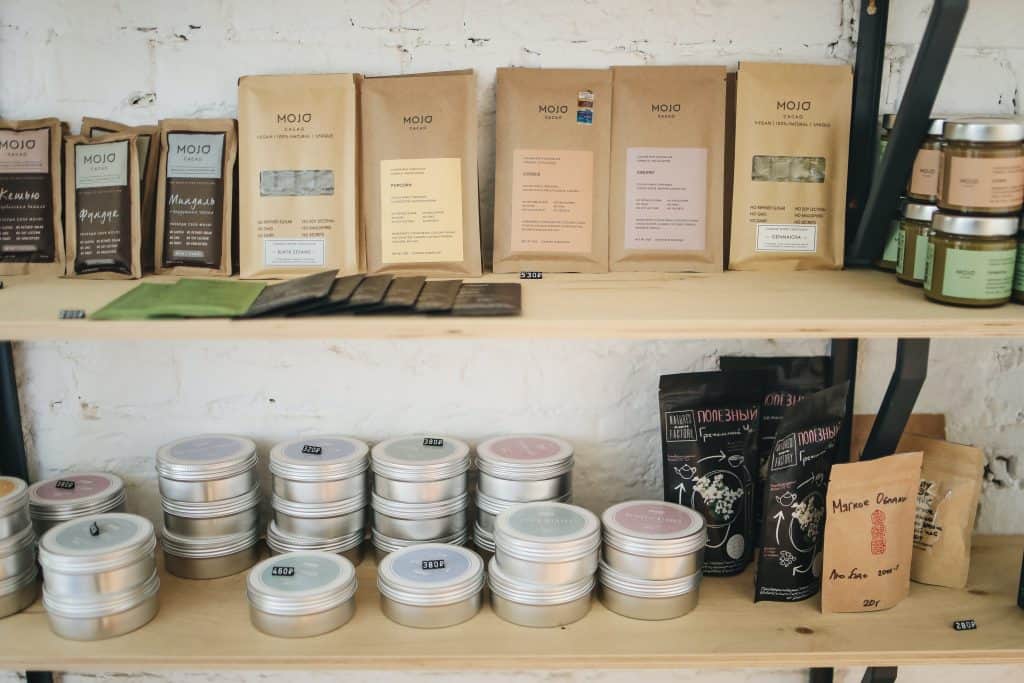
How does one find a mentor? Especially if they have no clue where they’re gonna look, or they don’t have somebody kind of in the wings ready to help them.
MT: So mine is a little more straightforward because, in the relationship here, Kevin’s had a lot of mentors in the light, but right now, Kevin is my mentor. And when people ask us this question, oftentimes they’re saying, “Hey, I don’t have the network,” or “I don’t know the right people, I could never get a mentor like Kevin,” and what I say is, is that the biggest thing you’ve got to have is some courage and some vulnerability. Most people don’t have mentors because they’re afraid to raise their hand and say, “I’m ready. I need a mentor. I’m ready to learn. I’m ready to be coached.” Now, you notice, I say, “I’m ready” instead of “I want.” “I want” is all about me. “I’m ready,” says, “I’m ready to learn. I’m ready to be the best student.” When I asked Kevin to be my mentor, I said, “I’m going to value your time, and I’m going to be your best student,” but he’d never had anyone say I’m going to be your best student. So he’s like, Whoa, Okay, wait a minute. I get asked this all the time, but this guy’s got my attention. What does it mean to be my best student?
Well, number one, I’m going to act now. I’m going to implement, and I’m going to come back and share what works and what didn’t, where I failed, and be vulnerable. And so if you’re looking for a mentor, and I had someone the other day that just said, “There’s no way I don’t have a network, I can’t find a mentor. It’s not as easy as you say.” But I gave him a challenge. I said, “Go on your social media and then type this in, say, ‘Hey, I’m looking for a mentor to help me grow my business. And I’m hoping you can introduce me to that person.'” And I said, “Somebody will show up.” Well, not only did someone show up, Stephan, lots of people showed up. Next thing you know, the guy says, “I don’t have a network,” He puts ten words out there, and now he’s interviewing people to be his mentor. And if it’s not in your exact inner circle, they’ll introduce you to someone. Remember, I didn’t know Kevin, but I knew Tom Ziglar and Julie Ziglar, and they knew Kevin. And so it came through someone who was in my inner circle that made the introduction. I believe you already know everybody you need to know to accomplish everything you were put on this earth to accomplish. You just have to have the courage and the vulnerability to raise your hand and say, “I’m ready.”
Most people don’t have mentors because they’re afraid to raise their hand and say, “I’m ready. I need a mentor.”
And do you have to pay a percentage to your mentor or like coaching fees or something? I know there’s a difference between a coach and a mentor.
KH: I mentor a lot of people and a straight mentoring relationship, there’s no financial strings attached. I give back to the entrepreneurial community, I mentor folks, help them, and it’s the philosophy that Mark and I both had from our days with Zig Ziglar. This was Zig’s quote, “You can get everything in life you want if you just help enough other people get what they want.” So this is what I’ve been doing for years, Mark’s been doing for years, Zig did for many years, and this is what makes us mentors out in the world. Some relationships eventually become more financially intertwined. Some mentors can get involved in businesses with their mentees, etc. Mark and I have done that exactly. So we started out having it being a mentor-mentee relationship in the normal way, and then it’s taken on other opportunities and some ways for us to share some business opportunities.
Yeah, I had a client who turned into a mentor who then turned into a board member, and then we sold that company and had a nice exit about ten years ago. So I know how that can blossom over time. And yes, everybody is you know is potential like one degree of freedom away, one degree of separation away from that next powerful mentor that’s going to take you to whole new heights. So I’m curious, Kevin. You shared earlier about this dark time when you were $2 million short because of the bank changing their policies. That reminds me of a previous client who went through a big struggle because they got put on a match list.
KH: What kind of list?
It’s called a match list. I didn’t know what it was until they told me about it. It’s what happens when you get enough chargebacks or complaints from customers who you’ve charged their card, and then you’re kind of like a persona non grata to all the banks and potential sources for merchant accounts. So they had real trouble taking credit cards after that point, and it was unfair and unfounded. So what would you tell this person going through that struggle which was a while ago now, but what would you tell them if it were happening now at that moment, like at this moment in time? What are the big powerful actions that this person would need to take?
KH: Well, I don’t know how they’ve got their relationship set up there. But sometimes the banks put limits on how much you can run through the account. So I would just say that in our world, there’s still a lot of uneasiness about the credit card world and banking because now we’re stripe, and lots of entrepreneurs are starting up. What’s to stop some of these people from running a bunch of cards, collecting a bunch of money, and then not shipping, not fulfilling? So there’s a ton of fraud going on out in the marketplace. So the banks have to protect themselves.
Everybody you know is one degree of separation away from taking things to new heights. Click To TweetBut what I would recommend is sitting with the people they do business with, and if they’re not the right people, get the right folks. At the end of the day, the banks want you to be successful; also, they don’t want to have to come to you and grab the $2 million. It’s too late to have conversations in a productive fashion when something like that happens. If you have it on the front end and say, “What do we need to do so that this doesn’t happen?” and it means “We’re going to launch six products this year. Great. Let’s make sure we have separate merchant accounts for each one.” “Okay. Are there any volume restrictions?” And go in a fashion where you know what the relationship is.
And then the problem I had with my contract is that the bank at their option at any time could grab money if they claim they didn’t feel that our account wasn’t–because I already gave him $500,000 if that $500,000 wasn’t enough. So we’ve learned now that if you’re going to put up some kind of front money deposit type of thing, they can’t be drawing down additional monies beforehand before they’ve gone through what’s already sitting there. So I think that if we learned how to wordsmith the agreements and things like that to protect and prevent something from happening in the future. So it’s open communication with them and also making sure that they understand you’re not one of these fly by night companies that’s here today gone tomorrow. There may be some additional securities that you could discuss with them and things like that. So I know it’s got a little specific into the situation here, but I’ve been through it, and certainly, if anyone needs help in these areas, I’ve got a lot of expertise.
Now, this reminds me of a pearl of wisdom I heard from Frank Kern, which is, “Sell it and then build it if you sell enough of it, otherwise, just refund the small number of people who bought it.” And that’s a great way to make sure that you don’t build something that nobody wants to buy and waste your time and lose an opportunity. What are your thoughts on that?
KH: I love that. Frank’s a very smart guy. I call it, “Test before you invest.” He called it?
Sell it before you build it.
Sell it and then build it if you sell enough of it, otherwise, just refund the small number of people who bought it.
KH: Sell it before you build it. Okay. I think that the test before you invest is the same concept. I’m going to test it. I’m going to see if it’s working. I’m going to see if the numbers are good. If it is, then we can invest in the big picture of all the costs. We could lose a quarter million, a half a million on something if we went all the way down the line of developing it, manufacturing it, etc. And I did that with one of my projects. We did a fitness product with Chubby Checker, it was called the Twist Desizer, and we invested over a half a million dollars in that project. We tested it, and it bombed. And if we had a chance to test it ahead of time, we probably would have saved ourselves $490,000. So we have a new way of doing business, and that’s exactly what Frank said, sell it before you build it, test before you invest. I love it.
That’s great. I assume that you guys have an ascension model or something for folks who buy the book, then they can get maybe a course, they could become part of a mastermind perhaps like, what’s the ascension model for this business venture that you guys are embarking on with the book?
MT: I’m gonna be candid. It doesn’t have the traditional ascension model, because our real goal, the book is called Mentor to Millions, it’s not millions of dollars, it’s millions of people impacted. So our real goal of this book is to impact a million-plus people. And so to do that, we’re not looking to sell anyone coaching or ascend them into a mastermind. We want to get this book in as many people’s hands as possible. And we want to inspire and almost make mentorship a contagious must-have. It’s the uber secret thing that successful people have; they all have mentors. They all had mentors that came into their lives at a critical time. And I don’t mean, just who we’re talking about here, I mean, the Steve Jobs of the world, the Richard Branson‘s of the world, they had mentors. Some of the people you’ve talked, Frank Kern had mentors, Tony Robbins had mentors.

And so really successful people have mentors, and that’s why Kevin and I are like, we want to get this book in as many people’s hands as possible. We’re giving away 30 days of free mentorship by Kevin and I, if they go to kevinmentor.com, and they can buy the book wherever books are sold, but we need them to then come back, show us that they bought it, and then we’ll give them 30 days of mentorship. And that’s our ascension model is just to get everybody so inspired to have a mentor and to be a mentor, that they’re going to have that habit and want to have mentors for the rest of their life.
Okay, that’s awesome. So kevinmentor.com, I love it. And from there, you can slick to buy the book, and you can sign up for the 30 days of mentorship. Do you need to submit a receipt for buying the book?
MT: It’s really easy. You buy the book, wherever books are sold, you come back, you just show us you bought it, we give you 30 days of mentorship. But here’s our challenge, Stephan, we want you to buy a book for your mentor, we want you to buy a book for yourself, and then we’d like for you to buy a book for somebody you should be mentoring. That’s kind of the trifecta of what we’re encouraging people because that’s how they can maximize their impact is to say thank you to a mentor with a book on mentorship, get one for yourself to consume, and then buy one for somebody that you should be mentoring, that you should be passing on the wisdom that you have to. So that’s just a little challenge that Kevin and I have. And we want people to fully figure out how to exponentially impact people, and we want that journey to start right now.
Well said. Alright, so last question. What keeps you guys up at night right now? These are challenging times for all of us. What is it that’s keeping you up at night?
The uber secret thing that successful people have; they all have mentors.
KH: Well, one of the challenges, I’ve invested in hundreds of companies, and some of them are doing great, we’ve had some amazing stories of tremendous success. Some of them are doing okay, and some of them are not. We’ve had a few that have had to close down. Not everybody is going to survive during these pandemic type situations. Especially certain little newer startup companies, because startups are in a very tenuous situation, they need everything to go perfect in the beginning days. And when something like COVID hits–if you have a retail store, for example, and COVID hits and you’re shut down, you don’t have customers, and you can’t weather the storm. I think a lot about a lot of these folks, people reaching out to me and looking for help, and they’re struggling, and I can do certain things, but I’m not a savior to the world.
So the bottom line is, this is why the book makes so much sense because the folks that get the right mentors during building their business, they’re going to be able to weather the storm in times of crisis. And so I firmly believe that if entrepreneurs can get themselves immersed in understanding how to get the right mentors and getting some, and becoming the best student for those mentors, they’re going to have a much better chance of survival. And maybe then I could get a little better sleep at night, but it is what it is. The good news is we’ve got some great and successful ones and a few that haven’t, but that’s the way it goes. And that does keep me up a little bit because I feel for those people that are struggling.
Those that get the right mentors during the build of their business are the ones who can weather the storm in times of crisis. Click To TweetMT: So if you want the candid, raw, real vulnerable answer, my teenage kids keep me up at night. I’ll tell you what young adults are so special, and I say that tongue in cheek because if you read the book, you’re going to find out that I talk a lot about family too. The book is a secret of success in business relationships and beyond. We end every chapter taking the business lessons that we’ve learned and applied it to our family. And so I say it’s my teenage kids keeping me up but not for the reasons you might think. I have developed a culture in my kids that they can ask me anything, that they can talk to me about anything. So they keep me up because guess what? They’ve chosen me to be their mentor.

I believe that the most valuable business that I will ever own, ever operate, be a part of, is the one I come home to, not the one I go to, that I am CEO of the most valuable business in the world, and that’s my family. When my kids have chosen me to mentor them, to teach them how to be the young adults, how to be the co-workers, how to be the friends, and how to be the students in their colleges, that they were put on this earth to be, I take that job more serious than anything on this earth. I love mentoring my family, and I’m so thankful that I made a pivot years ago to make them my most valuable business because they saw me go all in. And instead of the businesses competing, I integrated my businesses with my family. And that’s a big message that we talked about in the book is how to integrate, how to make your family your most valuable business. And if you do, then you’ll be in the same position as me, and you’ll be tapped on the shoulder, and your kids will choose you to mentor them into adulthood, and boy, don’t we all want that?
For sure. Okay, so I said it was the last question, but there is one more question. How can I get you, Mark, to be my mentor?
MT: Is that a personal question?
I’m serious. I’m dead serious like you don’t, ask you don’t get, right? And I like what you’re up to. I know you’ve been working with Scott, who’s a client of mine. And I think highly of you, and I’d love to have you be my mentor.
MT: Number one, I hope that you share this openly in the community because do you know how many people are out there, and they’re saying, “I can’t have that person as a mentor.” “They won’t mentor me” or “I don’t want to be vulnerable enough.” And so, do you know how you can have me as a mentor, Stephan, is exactly what you just did. You had the confidence and the courage to say, “You know what? I’m just gonna put it out there. I’m gonna raise my hand and say, ‘I like what you’re doing. I like who you are and would you mentor me?'” And so the answer you’re going to get is yes. And I’m only going to ask one thing, and that is, if we engage in this when we engage in this relationship, I’m just going to ask you to be a great student of the content that I share. And if you do that, then I’m going to find more time for you. I’m going to want to double down and share more things with you. That’s what Kevin did for me, and that’s that whole secret of success.
So the answer is absolutely. And I’m guessing there’s some interest on the family side of things. And I can tell you, and I want to be clear about this, the only reason that I can mentor anyone, including Scott or yourself in this area, is because I got it wrong for longer than I’ve gotten it right. And because I did, I know what it feels like to get it wrong, and now I know what it feels like to get it right. And I look for that in mentors, by the way, you can look someone up on Google, as we were talking about before we even did this recording, and see what they’ve done in their life to be successful. But you can’t look up and find out what their failures are often. And you want someone to mentor that has failed. You want someone that knows what it’s like to get it wrong because then they absolutely can help you get it right. And nobody should have to get wrong when I did as an entrepreneur, as a husband, as a father. And so I love the opportunity to share and help entrepreneurs crush it at home instead of getting crushed at home when at home like they’re winning at work. So deal.
The most valuable business we'll ever own or operate is the one we come home to, not the one you go to, and that's your family. Click To TweetAmazing. Well, I’m so excited, and I am very grateful. And I’m so glad to have this be in the interview too so I can share this as part of the episode so people can see that if you just put yourself out there and you’re willing to take a no–because a no just means not yet. It doesn’t mean that you’re a failure or that life just won’t ever go your way. It’s just an opportunity for the universe to give you a gift. And if you’re open to receiving it and you’re willing to put yourself out there, amazing things can happen for you.
MT: I couldn’t have said it better myself that is beautifully said. And it is the field of dreams, build it, and they will come, have the courage to raise your hand, be vulnerable enough to ask, and your mentor will show up.
Awesome. Well, that’s a great way to end this episode. And thank you again to both of you for just sharing from your hearts and not just in this episode, of course, but in the book that I’m gonna go buy because I’m inspired by both of you. I knew of both of you before. Of course, your PR person pitched me with this opportunity, and I think the world of you both. So thank you again.
MT: Thank you, Stephan.
And listeners, please take powerful action here and find yourself a mentor, get the book and put yourself out there, make big choices, and take chances, and we’ll catch you on the next episode. This is Stephan Spencer signing off.
Important Links
Checklist of Actionable Takeaways










About Kevin Harrington and Mark Timm
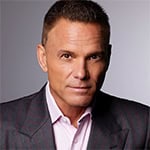
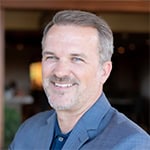
LOVED THIS EPISODE
Please consider leaving me a review with Apple, Google or Spotify! It'll help folks discover this show and hopefully we can change more lives!
Rate and Review